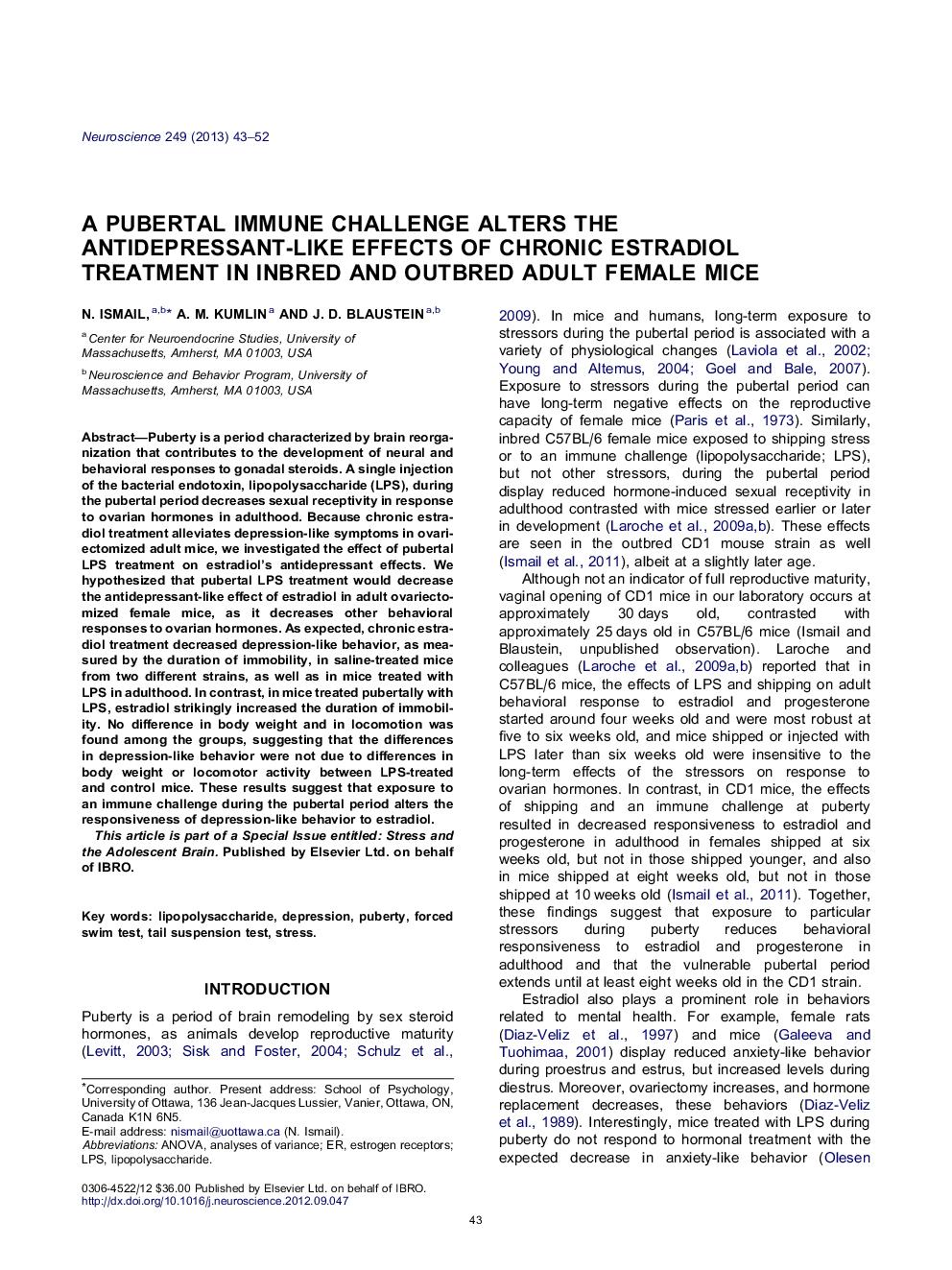| Article ID | Journal | Published Year | Pages | File Type |
|---|---|---|---|---|
| 4337887 | Neuroscience | 2013 | 10 Pages |
Puberty is a period characterized by brain reorganization that contributes to the development of neural and behavioral responses to gonadal steroids. A single injection of the bacterial endotoxin, lipopolysaccharide (LPS), during the pubertal period decreases sexual receptivity in response to ovarian hormones in adulthood. Because chronic estradiol treatment alleviates depression-like symptoms in ovariectomized adult mice, we investigated the effect of pubertal LPS treatment on estradiol’s antidepressant effects. We hypothesized that pubertal LPS treatment would decrease the antidepressant-like effect of estradiol in adult ovariectomized female mice, as it decreases other behavioral responses to ovarian hormones. As expected, chronic estradiol treatment decreased depression-like behavior, as measured by the duration of immobility, in saline-treated mice from two different strains, as well as in mice treated with LPS in adulthood. In contrast, in mice treated pubertally with LPS, estradiol strikingly increased the duration of immobility. No difference in body weight and in locomotion was found among the groups, suggesting that the differences in depression-like behavior were not due to differences in body weight or locomotor activity between LPS-treated and control mice. These results suggest that exposure to an immune challenge during the pubertal period alters the responsiveness of depression-like behavior to estradiol.
► Estradiol increases depression-like behavior in mice treated with LPS during puberty. ► Pubertal immune challenge alters the behavioral responsiveness to estradiol. ► Pubertal LPS treatment does not cause lasting changes in body weight and locomotion.
